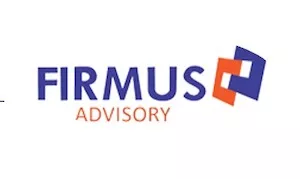In recent years, the animal feed market in Nigeria has experienced significant growth due to factors like increased livestock production, technological advancement, the growth of poultry and fish farming, and government initiatives. To break into the animal feed market, a number of steps are essential including; conducting a thorough market research; establishing supply chains; branding; and registration with the National Agency for Food and Drug Administration and Control (NAFDAC) etc.
Registering animal feed products (whether locally made or imported) with NAFDAC is a critical step for businesses in the livestock feed industry as it ensures product safety for consumers and enhances consumer confidence.
Step by Step Guide on how to register animal feed products with NAFDAC
Step 1
Write an application letter on your company's letterhead addressed to the Director of Food Registration and Regulatory Affairs (FR&R) Directorate.
Step 2
Purchase, complete and print out the online Registration Form from the NAFDAC Website. Some details required for completion of the form include:
- Manufacturer's Information such as Name of the Company, full location address of the factory, email address, and current phone no. & fax no, the name of contact person overseas, telephone no, email address. Name of airport closest to the location and guide map illustrating the shortest land/air route to the factory overseas (where applicable)
- Company's Tax Identification Number, where applicable
- Details of Applicant, such as name, residential contact, address, qualification, job title, warehouse address, etc.
- Number of products
- Details of the products
- Names of four (4) staffs including production manager, production staff, quality control and marketing director, where applicable.
Note that a separate registration form is to be filled for different animal feed products.
Step 3
Attach the following documents for submission at the nearest NAFDAC office:
- Certificate of business name registration or company incorporation
- Certificate of Trademark
- A Contract Manufacturing Agreement (CMA). The CMA should be signed by the Manufacturer and the Applicant, and must be notarized in the country of manufacture. The CMA should also state the names of all the products to be registered in a clear language.
- Evidence of payment of the required fees to NAFDAC
- Evidence of satisfactory Inspection issued by the NAFDAC's Veterinary Medicines and Allied Products (VMAP) Directorate or Good Manufacturing Practice (GMP) Certificate for product line (companies with registered products).
- Product Samples
- Product Labels/Art works
- Certificate of Analysis. The Certificate of Analysis must be presented on letterheaded paper of the Quality Control Laboratory where the products were tested, and should contain the following:
- The brand name of the products
- Batch number of the products
- Manufacturing and expiry dates
- Name, designation and signature of the analyst
For imported animal feeds the following documents should be added:
- A notarized declaration
- A Power of Attorney (POA). The POA should be valid for at least 5 years and must be signed by a senior company official. It must also be notarized in the country of manufacture; state the authority to register the product with NAFDAC and indicate ownership of the brand name or trademark.
- A Certificate of Manufacture and Free sale. This Certificate should be obtained from the relevant health/regulatory body in the country of manufacture, showing that the company is licensed to produce the food product and that it complies with local laws. The Certificate must also be authenticated by the Nigerian Embassy or High Commission in the country of origin or any Commonwealth or ECOWAS country, where no Nigerian Embassy exists.
- Letter of Invitation for Good Manufacturing Practice (GMP) inspection: A letter of invitation to inspect the factory abroad shall be written by the manufacturer and should include both the manufacturer's and local agent's details.
Step 4
Upon satisfactory documentation, GMP inspection of the production facility and laboratory analysis, the products are presented at the NAFDAC products approval meetings.
For imported animal feed products, upon successful screening of documentation and review of supporting documents, an Import Permit will be issued. Thereafter, a laboratory analysis of the products will be carried before the products are presented at an approval meeting.
Further, if the products are with unsatisfactory labeling, a compliant artwork may be accepted with a written commitment by the manufacturer to ensure that the commercial product will be labeled in accordance with the approved product artwork. This helps avoid extra cost of redesigning and reprinting the product labels.
Step 5
The next step in the registration process of animal feeds with NAFDAC is the issuance of notification. For products approved at the Products Approval meeting, Notification of Registration or Listing is issued to the applicant while compliance directive is issued to those not approved.
Thereafter, a successful application will be issued a Certificate of Registration with a validity period of five (5) years.
To view the article in full click here
The content of this article is intended to provide a general guide to the subject matter. Specialist advice should be sought about your specific circumstances.


